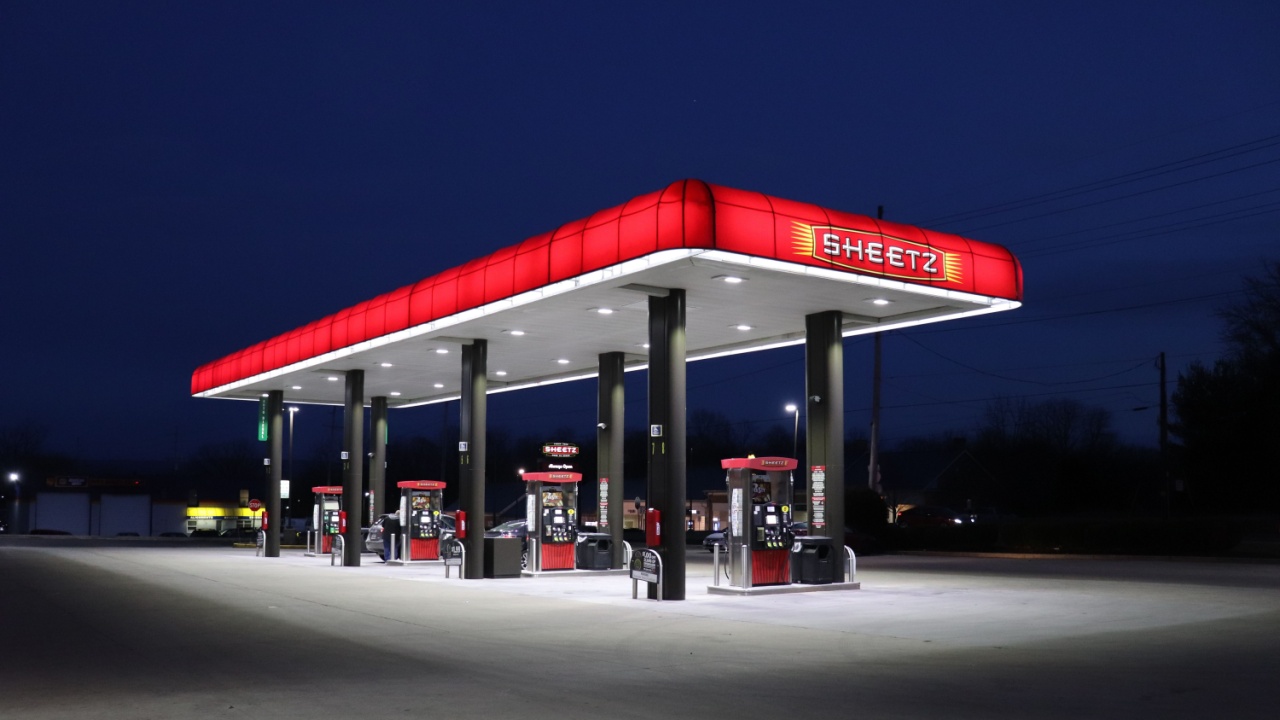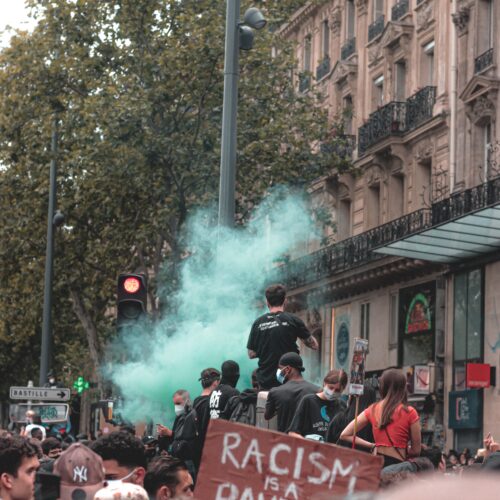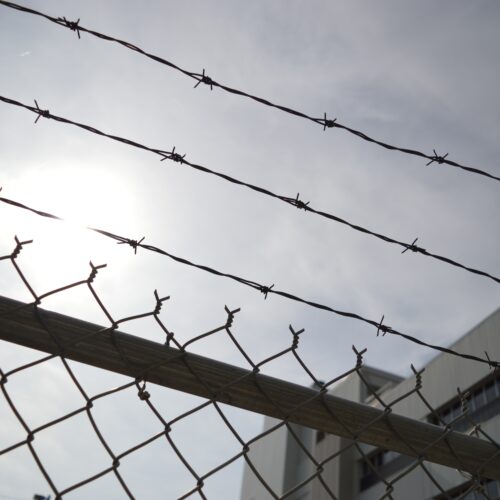Turning Away Criminals Is Not Racist

Editor’s Note: The central premise of the group quota regime is simple: Wherever outcomes for a given group are not exactly proportional to that group’s share of the population, an injustice exists that must be forcibly corrected. This is true, apparently, even of criminal background checks, which the Biden administration is challenging on the sole grounds that black applicants are turned away at higher rates than white ones. Erinn Broadus, a policy analyst specializing in criminal justice, argues that the background checks in question are a commonsense policy with a clear purpose, and that any disparities in outcome cannot be pinned with the ubiquitous charge of “racism.”
Sheetz, a private gas station operating in six states, was recently served a lawsuit claiming the business discriminated against minorities by refusing to hire applicants who failed a criminal background check. The lawsuit was filed by the Equal Employment Opportunity Commission against a Sheetz store in Baltimore, Maryland.
Notably, the lawsuit does not explicitly allege that Sheetz’s hiring process is motivated by race—only that the system in place disproportionately affects black, Native American, and multiracial applicants. This “disparate impact” standard has dominated employment law since the passage of the Civil Rights Act of 1964, creating a roundabout promise of group outcome equality. Title VII of the act prohibits discrimination on the basis of race, sex, religion, color, or national origin. Yet the disparate impact principle extends this prohibition to any hiring policy that results in uneven group outcomes, regardless of its intent. In practice, this amounts to a system of group quotas. The only exception provided for employers is when a policy resulting in disparate impact can be shown to be necessary and related to the job.
Even under this standard though, Sheetz should not be coming under fire. Gas stations are high-volume businesses with large quantities of cash that rely on traffic coming off the road; many are open 24 hours a day. Ensuring the safety of employees and clientele in such a business is obviously a priority. The easiest way to do that is to run a background check on any potential hires to see if an applicant has been accused of concerning behavior in the past.
Past behavior is one of the clearest indicators of future behavior, a point repeatedly reinforced by recidivism research. In fact, a 2023 Bureau of Justice Statistics analysis found that 77 percent of those entering state prison had been arrested five or more times. While there is merit in second chances, a private company like Sheetz cannot be expected to hire someone previously charged with theft to oversee daily finances, or someone previously charged with assault to tend to customers on the night shift.
EEOC’s lawsuit claims that black, multiracial, and Native American applicants were denied employment due to failed background checks at rates of 14.5 percent, 13.5 percent, and 13 percent, respectively. In contrast, 8 percent of white applicants were denied for failed background checks, according to the Associated Press.
Why should we assume that this difference in rejection rates amounts to racism? In fact, a recent survey from the Bureau of Justice Statistics suggests that the percentages of applicants denied employment due to background checks might parallel offending rates. According to the National Crime Victimization Survey, which is the nation’s primary source for victimization data, black individuals accounted for 25.4 percent of perceived offenders in violent situations despite representing only 13 percent of the population.
As with all surveys, there is the potential for methodological error, including the possibility that the victim’s memory of the crime is incorrect. Regardless, this broader reality is inevitably going to be reflected in hiring and employment. Using background checks as a proxy for candidate eligibility is, on its face, not racial discrimination. Every business has the right to ensure safety.
Sheetz did not respond to inquiries about what specific charges are subject to dismissal, but their website claims that each background check is reviewed on an individual basis. This practice is perfectly acceptable, given that different staff members are responsible for different roles. An applicant applying for a job that involves operating heavy machinery might be dismissed as a candidate for previous reckless driving charges, for example. Someone with a background that involves previous violent charges might not be the best candidate for a customer-facing job, either.
Ensuring the safety of your employees and customers is of paramount importance when running a business. Surveys indicate that crime is front of mind for an increasing number of Americans, meaning that creating a safe environment should be a key consideration for business owners. Gallup, a global analytics group, found that 40 percent of Americans would be afraid to walk alone at night within a mile of their house. This is the highest number recorded in four decades. Further, 34 percent of respondents claimed that fear of crime prevented them from driving through specific areas of their town or city—particularly relevant for a business that makes money on customers driving by.
In the first four months of 2024, there has been a double shooting outside of a Virginia Sheetz, three men charged with attempted aggravated murder in Prince George, and a man sentenced for a fatal shooting in Columbus. All of these happened on Sheetz property or even inside a Sheetz building. This doesn’t include crimes that don’t make national news, or those that victims refuse to pursue. It is no wonder that Sheetz uses background checks for its employees. There is a real and demonstrable need here.
Even the Fair Chance to Compete for Jobs Act of 2019, which is largely known as the “ban the box” legislation, put in place a series of “outs” for employers to weed out applicants with specific criminal pasts. The “black box” is the box on an application that asks about any past felonies or misdemeanors. A push to remove the box was passed for several federal government roles, essentially meaning government employers were not allowed to ask about past convictions until later in the employment process. However, even this law allowed the caveat that “black box” hiring does not apply to law enforcement, jobs requiring access to classified information, or other jobs where a background check is required by law.
This is a tacit admission of the necessity of hiring the right people, regardless of race. That necessarily involves understanding the background of each potential applicant. Sheetz, and every business, deserves the right to maintain a safe work environment, and that begins with hiring the right employees.
Under Title VII, denying an applicant based on past criminal history is acceptable if the employer conducts individual assessments based on the nature of the work, the crime, and time elapsed. That is exactly the situation at hand, and it can only be construed as racist under the logic of group quotas, in which nothing less than exact, proportional representation is acceptable, regardless of merit and other crucial factors. EEOC’s lawsuit is a stretch, at best. At worst it is a real danger—in the short term, to the customers and coworkers exposed to convicted criminals; and in the long term, to the very principles of fairness in hiring the government claims to defend.
Erinn Broadus is a policy analyst specializing in criminal justice. She holds an MPA and an M.S. in criminology, both from Florida State University. She has served as deputy director of criminal justice policy at the Pegasus Institute, a policy analyst at the Cicero Institute, an investigative reporter at The Daily Caller, and a staff reporter at The Dallas Express.


